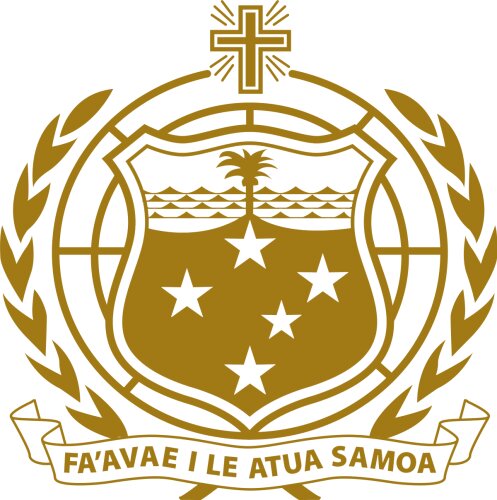Best Faith-Based Law Lawyers in Samoa
Share your needs with us, get contacted by law firms.
Free. Takes 2 min.
Or refine your search by selecting a city:
List of the best lawyers in Samoa
About Faith-Based Law in Samoa
Faith-Based Law in Samoa is an intricate blend of traditional customs, religious beliefs, and statutory laws that reflect the predominantly Christian faith of the nation, particularly influenced by denominations such as Congregationalist, Methodist, and Roman Catholic. The intersection of faith and law is evident in areas such as family law, matrimonial disputes, and community governance, where religious doctrines often guide legal decision-making processes. While the secular legal system governs the nation, faith interpretations can hold substantial weight within community and family settings.
Why You May Need a Lawyer
Several situations may warrant seeking legal advice under Faith-Based Law in Samoa. These include:
- Marital and Family Disputes: Issues such as divorce, child custody, and marital property distribution can be deeply influenced by religious principles.
- Community Disputes: Conflicts that arise in villages or communities, where traditional and religious values are intertwined with legal practices.
- Religious Freedom: Concerns about the practice of faith, particularly when there are conflicts with secular laws or other religious groups.
- Inheritance and Wills: Execution of wills and inheritance that consider religious mandates can require legal expertise.
- Church Governance: Disputes within or involving church governance, property, and leadership roles.
Local Laws Overview
Samoa's legal framework blends statutory laws with traditional customs and religious beliefs, particularly within the context of village and family life. Key aspects include:
- Matai System: The traditional village governance system that often overlaps with legal issues related to land and family disputes.
- Constitutional Recognition: The Samoan Constitution recognizes the importance of religion, mentioning its foundational role in society.
- Village Fono Act: Provides for the local governance structures, where traditional and religious principles play a pivotal role.
Frequently Asked Questions
What is the role of Faith-Based Law in the Samoan legal system?
Faith-Based Law in Samoa serves as an influential part of societal governance, predominantly affecting family law and community issues where religious customs intersect with statutory law.
Can religious beliefs affect legal proceedings in Samoa?
Yes, religious beliefs can significantly impact legal proceedings, especially in local village contexts where traditional customs and religious values are highly regarded.
What are the common legal issues related to Faith-Based Law in Samoa?
Common issues include family disputes, inheritance matters, religious freedom conflicts, and church governance.
Are there legal protections for religious practices in Samoa?
The Samoan Constitution provides for the freedom of religion, protecting individuals’ rights to practice their faith within legal boundaries.
How does the Matai system influence legal decisions?
The Matai system, integral to Samoan culture, involves village leaders whose decisions in local matters often reflect a mix of customary and religious laws.
How is marriage governed under Faith-Based Law in Samoa?
While civil law governs marriage, religious customs significantly influence marriage ceremonies, dispute resolutions, and related family matters.
Is legal advice required for church-related disputes?
Legal advice is advisable for church-related disputes, particularly when issues of governance or property are contested and may involve faith-based principles.
Are lawyers knowledgeable in Faith-Based Law available in Samoa?
Yes, some lawyers in Samoa specialize in areas where Faith-Based Law is relevant, particularly in family and community law.
What is the role of the church in conflict resolution?
Churches often play a mediatorial role in conflict resolution, offering guidance based on religious teachings and fostering community harmony.
How can one find a lawyer specializing in Faith-Based Law?
Contacting local law associations or seeking referrals from community leaders or religious organizations can help in finding specialized legal assistance.
Additional Resources
For additional guidance, consider the following resources:
- Ministry of Justice and Courts Administration: Provides legal information and assistance.
- Local Churches: Offer support and guidance grounded in faith-based principles.
- Samoa Law Society: A professional body that can help locate qualified legal practitioners.
Next Steps
If you need legal assistance in Faith-Based Law, consider the following actions:
- Identify and clarify the specific legal issue or dispute you are facing.
- Contact local legal professionals or the Samoa Law Society for referrals to lawyers with experience in Faith-Based Law.
- Engage in consultations to understand the intersection of faith-based and secular legal implications in your case.
- Seek mediation from community or religious leaders where appropriate, understanding the cultural context of the issue.
Lawzana helps you find the best lawyers and law firms in Samoa through a curated and pre-screened list of qualified legal professionals. Our platform offers rankings and detailed profiles of attorneys and law firms, allowing you to compare based on practice areas, including Faith-Based Law, experience, and client feedback.
Each profile includes a description of the firm's areas of practice, client reviews, team members and partners, year of establishment, spoken languages, office locations, contact information, social media presence, and any published articles or resources. Most firms on our platform speak English and are experienced in both local and international legal matters.
Get a quote from top-rated law firms in Samoa — quickly, securely, and without unnecessary hassle.
Disclaimer:
The information provided on this page is for general informational purposes only and does not constitute legal advice. While we strive to ensure the accuracy and relevance of the content, legal information may change over time, and interpretations of the law can vary. You should always consult with a qualified legal professional for advice specific to your situation.
We disclaim all liability for actions taken or not taken based on the content of this page. If you believe any information is incorrect or outdated, please contact us, and we will review and update it where appropriate.
Browse faith-based law law firms by city in Samoa
Refine your search by selecting a city.









